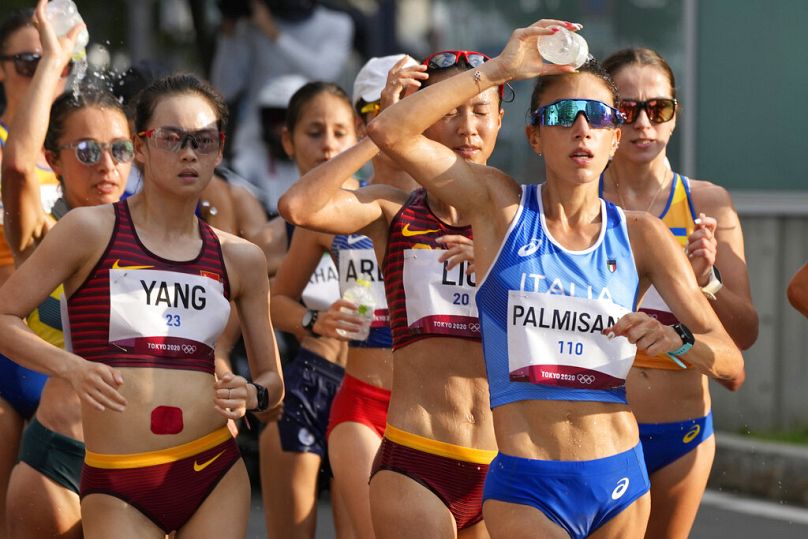As Tokyo becomes one of the hottest Olympic Games on record, the World Athletics president says we may have to revisit what is possible.
The effects of climate change will force sports bodies to rethink their calendar of events, World Athletics president Sebastian Coe said Sunday.
 ADVERTISEMENT
ADVERTISEMENT
 ADVERTISEMENT
ADVERTISEMENT
The extreme heat and humidity in Japan forced changes to the track schedule, as well as tennis and women’s soccer. With the Games set to be one of the hottest on record, sports stars including world tennis number one, Novak Djokovic described the conditions as "brutal".
“You don’t have to be a devotee of climate change or a denier to know the world is getting hotter,” Coe, a two-time Olympic champion, said on the final day of the Tokyo Games.
“It probably will mean a global discussion around the calendar and how we stage events.”
In 2019, the men’s women’s marathons and race walks were moved from Tokyo to Sapporo in the hopes the northern city would have cooler temperatures. Sapporo, however, was also too hot and it was announced on the eve of the event that the women's marathon on Saturday would have to be brought forward by one hour to 6 am.
Tennis and women’s soccer were also switched from morning start times under pressure from players concerned for their health.
Coe noted the stress on his staff of “having to create field hospitals and having your team spending a year thinking about little else other than how you are going to be coping with the welfare of the athletes.”
“Nobody wants to do that. That’s not what we came into the sport for,” he said, adding “we could well be confronting the same temperatures in Paris in 2024.”
Will climate change affect future sporting events?
In July 2022, the track world championships will be held in Eugene, Oregon, where a record heatwave raised temperatures to 42 degrees Celsius at the U.S. trials in June. Morning sessions had to be suspended due to the extreme heat.
“The new norm is, particularly in dealing with endurance events, really harsh climatic conditions,” Coe said.
The last world championships in 2019 were held in Qatar, scheduled for late September to avoid the summer heat. Next year’s soccer World Cup will open in November to again avoid the heat during the tournament’s traditional time slot.
At the 2019 worlds, the sight of runners failing to finish the marathons helped persuade the International Olympic Committee (IOC) to change its plans for Tokyo for the long-distance races.
“If you are going to be intellectually coherent here, we are going to have to have that debate,” said Coe, an IOC member. He predicts that sports bodies will be ”revisiting what is possible and probably having to be more adaptable in future.”
“The reality of it is, I think this a challenge we are all going to confront now.”











